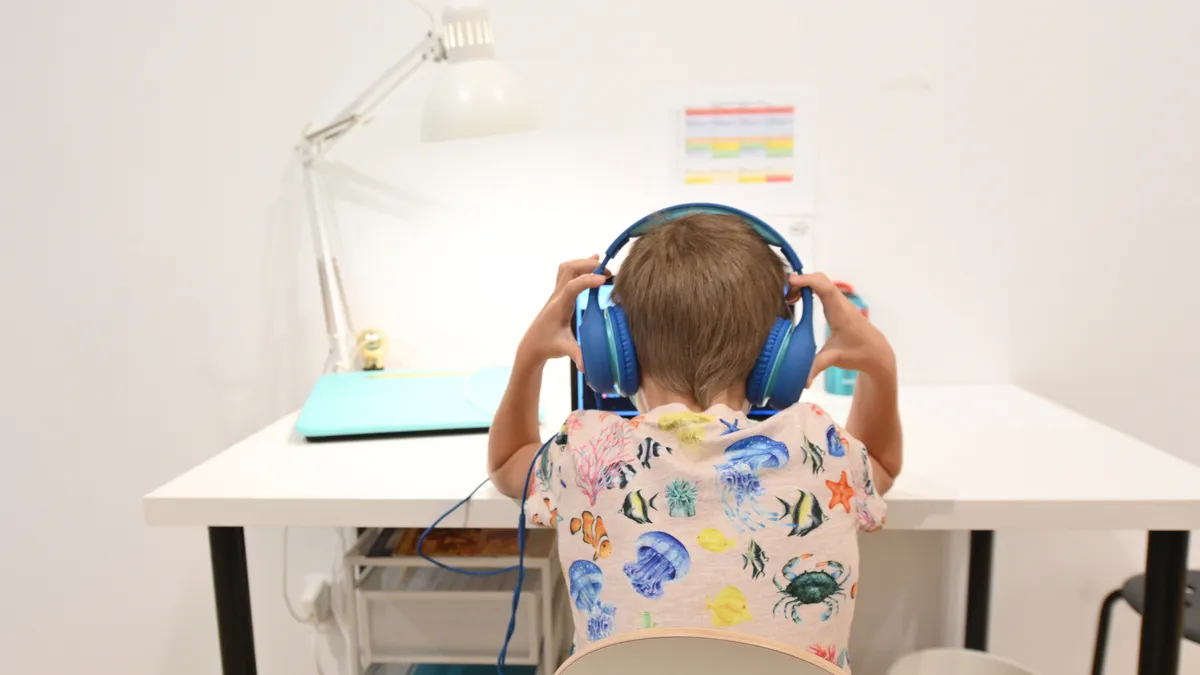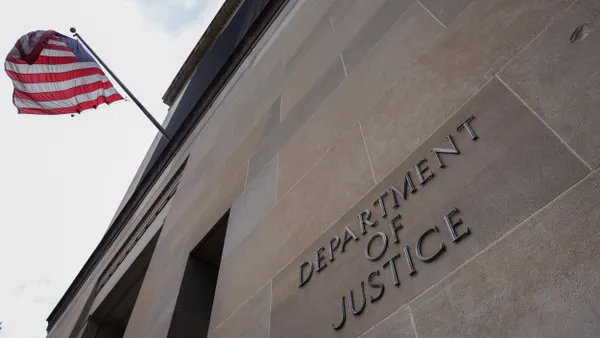Dive Brief:
-
Virginia's Fairfax County Public Schools has agreed to a comprehensive plan to provide individualized special education services that were missed when schools operated remotely due to COVID-19 closures, according to a resolution agreement between the district and the U.S. Department of Education's Office for Civil Rights.
-
During an investigation that began in January 2021, OCR found the district — one of the nation's largest school systems — violated the civil rights of thousands of students with disabilities by failing or being unable to provide services as required in their individualized education program. The district also reduced or placed limits on special education services based on considerations other than the students’ individual educational needs, among other violations, a Nov. 30 letter from OCR to the district said.
-
Adapting in-person special education services to online instruction and support was a struggle for schools and teachers during the pandemic. But despite the hardships, the Education Department never allowed districts to waive their obligation under the Individuals with Disabilities Education Act and Section 504, both of which protect the rights of students with disabilities.
Dive Insight:
OCR conducted a similar investigation into the Los Angeles Unified School District, which reached a resolution in April. An investigation into Seattle Public Schools' services to special education students during the pandemic is ongoing, according to an OCR database of pending cases last updated Nov. 4.
Another investigation into the Indiana Department of Education's special education practices during remote learning was dismissed in June 2021 due to insufficient information to suggest discriminatory practices.
The Fairfax resolution requires the district, which educates 178,000 students of which 25,000 are students with disabilities, to provide enhanced or additional services — known as compensatory education or compensatory services — to all students who need them.
The district will use a tracking system to ensure all students who need compensatory services receive them. Additionally, the district will appoint an administrator to manage the plan and be a point of contact for families with questions or concerns.
In a statement posted to the Fairfax County Public Schools website Wednesday, the district said it will offer IEP and Section 504 plan meetings to all current students with disabilities and to those who graduated or left the division during the "pandemic period" of April 14, 2020, to June 16, 2022.
"As we emerge from the global pandemic, FCPS remains committed to working diligently to provide the support needed to ensure each and every student recovers from learning loss. FCPS has and will continue to leverage resources to ensure students with the greatest need receive prioritized support for enhanced outcomes," the statement said.
Like many districts, Fairfax struggled to educate students — especially those with disabilities — online during the pandemic. The district's former special education director told OCR investigators that staff did “the best they could to provide what a student needed to receive a FAPE [free, appropriate public education].”
In the first two months of the pandemic and when schools were closed, it is estimated that students with disabilities in the district missed a total of more than 60,000 sessions of occupational, speech, or physical therapy during remote learning, the letter said.
The cost estimate given at the time to make-up those missed services was $3 million.
Part of Fairfax's approach in the early months of the pandemic was to create a temporary learning plan for each student with disabilities who had an individualized education program. Those plans outlined each student's special education and related services while campuses were closed. The services and accommodations, however, might look different than the student's IEP from before schools closed, the district told families, according to OCR.
Parents who disagreed with the temporary plans could request an IEP meeting. Students with Section 504 plans were not offered temporary learning plans.
By fall 2020, when the school year began remotely, the district had discontinued the temporary learning plans and focused on implementing IEPs, the OCR letter said. But guidance to staff "indicated that, for some students, IEP goals and objectives should be reduced, both qualitatively and quantitatively, to account for the virtual setting," the OCR letter said.
One example cited in the letter is of a student whose in-person services called for 15 hours per month of special education services provided in a general education setting and 2 hours per month of small, self-contained speech language services. If education were online, which it was for much of the 2020-21 school year, that student could expect just 2.5 hours per week of special education services in a general education setting and another hour per month of speech language services.
Denise Marshall, CEO for the Council of Parent Attorneys and Advocates, said the nonprofit advocacy organization is ready to “support Fairfax County students and their families in every way necessary, to assure IEP and 504 team meetings are held and decisions made that benefit and support the success of every student.”
"By taking this action, OCR is demonstrating that no district can shun its obligations to students and must use the resources provided by Congress to address their educational needs," Marshall said.












